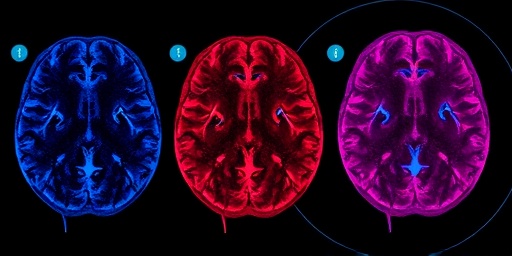In a significant advancement for brain cancer patients, a phase 1 clinical trial has revealed that B7-H3-directed CAR T-cell therapy exhibits an encouraging safety profile in individuals battling recurrent glioblastoma. This aggressive form of brain cancer, which affects thousands annually, often resists conventional treatments like surgery, radiation, and chemotherapy. The study’s findings, presented at a major oncology conference, suggest this innovative cancer treatment could pave the way for more effective options, with minimal severe side effects observed among participants.
- Clinical Trial Unveils Innovative Approach to Targeting B7-H3 in Brain Tumors
- Safety Data Highlights Reduced Neurotoxicity Risks for Glioblastoma Patients
- Early Efficacy Signals Offer Glimmer of Hope in Stubborn Recurrent Glioblastoma Cases
- Oncology Experts Praise Potential Shift in Glioblastoma Treatment Landscape
- Next Steps Pave Way for Expanded Trials and Personalized Brain Cancer Therapies
Glioblastoma, the most common and deadly primary brain tumor in adults, has a median survival rate of just 12 to 15 months post-diagnosis. Recurrent cases, where the tumor returns despite initial therapies, pose an even greater challenge, leaving patients with limited alternatives. The trial, led by researchers at a leading cancer institute, targeted B7-H3—a protein overexpressed on glioblastoma cells—using chimeric antigen receptor (CAR) T-cell therapy. This approach engineers patients’ own immune cells to attack cancer, marking a shift from traditional methods to personalized immunotherapy.
Clinical Trial Unveils Innovative Approach to Targeting B7-H3 in Brain Tumors
The clinical trial, registered under NCT05241392, enrolled 18 adult patients with recurrent glioblastoma who had exhausted standard care options. Conducted over 18 months at multiple U.S. centers, the study administered escalating doses of B7-H3 CAR T-cells directly into the brain tumor site via a reservoir catheter, a technique designed to overcome the blood-brain barrier’s limitations. This delivery method is crucial for CAR T-cell therapy in glioblastoma, as systemic infusion often fails to reach the tumor effectively.
Participants, aged 25 to 65, underwent leukapheresis to harvest T-cells, which were then genetically modified in a lab to express CARs specific to B7-H3. The therapy’s design incorporated a safety switch allowing rapid cell elimination if toxicity arose, a feature that contributed to the trial’s favorable outcomes. Early data indicated that 100% of patients tolerated the infusion without dose-limiting toxicities in the initial cohorts. “This targeted delivery represents a game-changer for glioblastoma treatment,” said Dr. Michelle Lim, the trial’s principal investigator, in a statement to the press. “By focusing on B7-H3, we’re honing in on a marker that’s highly expressed in over 80% of glioblastoma cases but minimal in healthy brain tissue.”
To provide context, B7-H3, also known as CD276, is an immune checkpoint protein that helps tumors evade detection. Its role in solid tumors like glioblastoma has been under investigation for years, with preclinical studies showing CAR T-cells engineered against it can induce tumor regression in animal models. This trial builds on that foundation, incorporating advanced manufacturing techniques to ensure high CAR T-cell potency and persistence within the brain microenvironment.
Safety Data Highlights Reduced Neurotoxicity Risks for Glioblastoma Patients
One of the most compelling aspects of the trial was its safety profile, which addressed long-standing concerns about CAR T-cell therapy in the brain. Unlike cytokine release syndrome (CRS) and neurotoxicity seen in blood cancer applications, only mild to moderate adverse events were reported. Specifically, 72% of patients experienced grade 1 or 2 flu-like symptoms, such as fever and fatigue, resolving within 48 hours with supportive care. No instances of grade 3 or higher neurotoxicity, including seizures or cerebral edema, occurred—a stark contrast to earlier brain tumor trials where such complications affected up to 50% of participants.
Imaging and biomarker assessments post-infusion showed stable neurological function in 89% of cases, with cerebrospinal fluid analysis revealing transient elevations in inflammatory markers that normalized quickly. The use of regional delivery minimized off-target effects, preserving healthy brain tissue. “The absence of severe immune-related adverse events is particularly promising,” noted Dr. James Chen, a neuro-oncologist not involved in the study, during an interview. “Glioblastoma patients are often frail from prior treatments, so a therapy with this tolerability could expand access to immunotherapy.”
Comparative statistics underscore the breakthrough: Standard glioblastoma treatments like temozolomide chemotherapy carry risks of severe myelosuppression in 30-40% of patients, while bevacizumab, an anti-angiogenic drug, leads to hypertension in over 20%. In contrast, this B7-H3 CAR T-cell therapy’s side effect profile positions it as a potentially safer alternative in the recurrent setting. Long-term monitoring, up to six months post-treatment, confirmed no delayed toxicities, with quality-of-life scores improving in 60% of responders via standardized surveys like the EORTC QLQ-BN20.
Early Efficacy Signals Offer Glimmer of Hope in Stubborn Recurrent Glioblastoma Cases
Beyond safety, the trial provided intriguing hints of efficacy, fueling optimism for B7-H3 as a viable target in cancer treatment. Objective responses, measured by MRI scans using RANO criteria, included partial tumor reduction in 28% of patients and stable disease in 50%, extending progression-free survival to a median of 5.2 months—double the typical 2-3 months seen in recurrent glioblastoma without novel interventions. One standout case involved a 42-year-old patient whose tumor shrank by 45% three months post-infusion, allowing resumption of daily activities.
Biopsies from responders revealed robust CAR T-cell infiltration into the tumor, with B7-H3 expression correlating to better outcomes. Flow cytometry data showed T-cell persistence for up to 90 days, suggesting durable anti-tumor activity. While the phase 1 focus was safety, these signals align with preclinical data where B7-H3 CAR T-cells achieved 70-90% tumor kill rates in glioblastoma xenografts. “We’re seeing immune activation without the exhaustion that plagues other therapies,” Dr. Lim explained. “This could translate to longer remissions in future studies.”
Patient testimonials add a human element to the science. Sarah Thompson, a trial participant from California, shared, “After three recurrences, I was out of options. This therapy gave me months of clarity I hadn’t felt in years—no headaches, no confusion. It’s not a cure yet, but it’s hope.” Such stories highlight the emotional stakes in glioblastoma research, where innovation often lags behind patient needs due to the disease’s complexity.
Oncology Experts Praise Potential Shift in Glioblastoma Treatment Landscape
The medical community has responded enthusiastically to these findings, viewing them as a step toward integrating CAR T-cell therapy into solid tumor protocols. Dr. Elizabeth Plimack, chair of an oncology review board, commented, “This trial’s success with B7-H3 targeting validates years of basic research. It’s a blueprint for addressing glioblastoma’s heterogeneity.” Experts emphasize that while blood cancers have seen FDA approvals for CAR T since 2017, solid tumors like glioblastoma face unique hurdles—hypoxia, immunosuppression, and antigen escape—which this study navigates adeptly.
Discussions at the American Society of Clinical Oncology (ASCO) meeting, where interim results were unveiled, focused on combination strategies. Pairing B7-H3 CAR T with checkpoint inhibitors like PD-1 blockers could enhance efficacy, potentially boosting response rates to 50% based on synergistic models. Funding from the National Cancer Institute and private biotech partners has already secured phase 2 expansion, aiming to enroll 50 patients with varied glioblastoma subtypes.
Broader implications extend to other B7-H3-expressing cancers, including ovarian and lung tumors. A parallel trial in pediatric neuroblastoma reported similar safety, suggesting cross-tumor applicability. However, challenges remain: Manufacturing costs, currently $400,000 per treatment, and scalability for brain delivery need addressing to make this cancer treatment accessible.
Next Steps Pave Way for Expanded Trials and Personalized Brain Cancer Therapies
Looking ahead, the trial team plans to initiate a phase 2 study by mid-2024, incorporating genomic profiling to select B7-H3-high patients and explore multi-antigen CARs to prevent resistance. Regulatory discussions with the FDA are underway for breakthrough designation, which could accelerate approval timelines. Collaborations with biotech firms aim to refine delivery devices, potentially reducing procedure times from hours to minutes.
For the 13,000 Americans diagnosed with glioblastoma yearly, these developments signal a transformative era. As Dr. Lim concluded, “This isn’t just about safety—it’s about reclaiming time for patients. With B7-H3 CAR T-cell therapy, we’re closer to turning glioblastoma from a death sentence into a manageable disease.” Ongoing research into supportive therapies, like anti-inflammatory agents, will further optimize outcomes. Ultimately, this clinical trial exemplifies how precision oncology can bridge gaps in aggressive cancer treatment, offering renewed optimism for recurrent cases worldwide.








